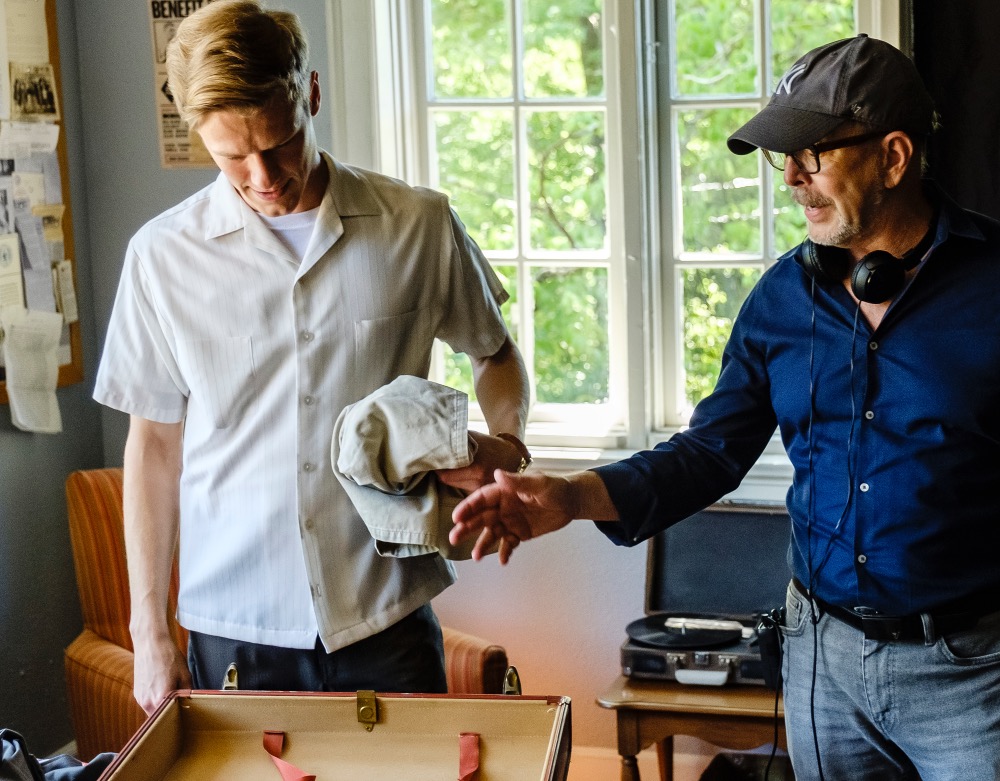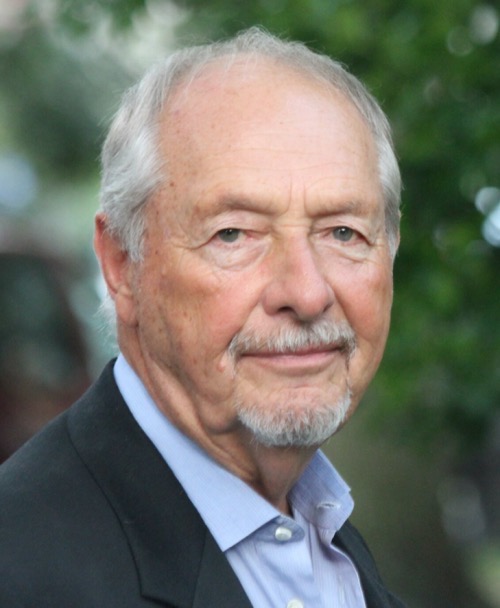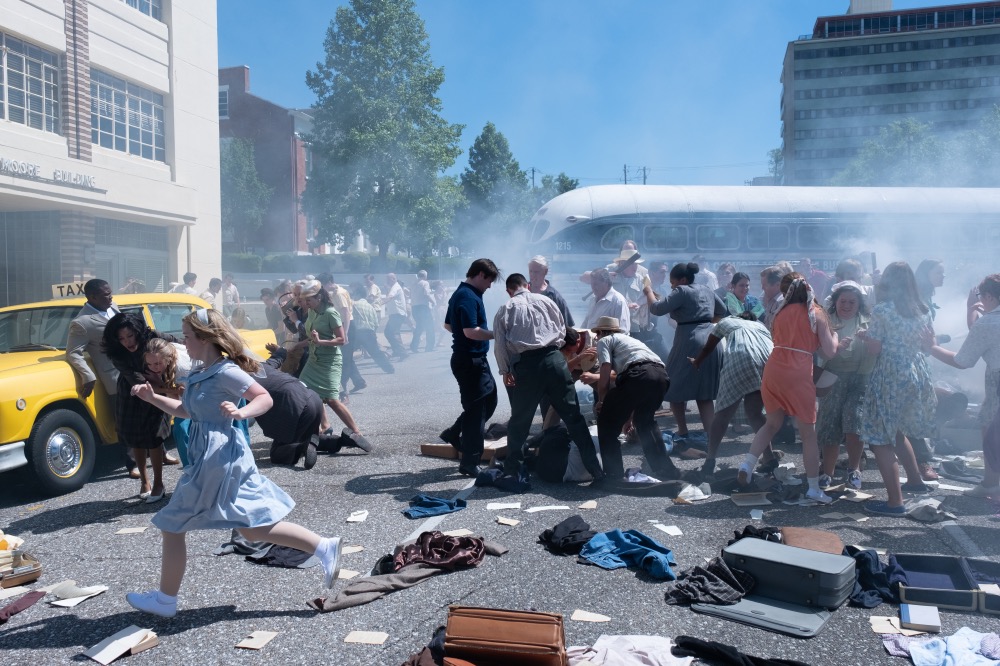
DAVID ADAMS speaks to writer/director Barry Alexander Brown about his latest film, ‘Son of the South’…
New York-based screenwriter and director Barry Alexander Brown wants to show people the South he grew up in – a place that is a bit more nuanced than some people would have it.
And so when it came to his latest film – Son of the South, a story which focuses on the struggle for civil rights in America’s South during the early 1960s – he wanted to make sure that the characters weren’t just two-dimensional.
“I didn’t want the heroes to be super-heroes, super-people, super-moral people, and I didn’t want the people who repressed them, the racists, to be just monsters,” he tells Sight, speaking during a Zoom session from his home in Manhattan’s East Village.
“I wanted everybody to be a person and everybody to have the full facets of humanity in them. [American poet] Maya Angelou read the script – actually she threw a party for us, very early on, to try to get the film going – and one thing that she said was [that] all of this stuff resides in all of us – all the goodness and all the hate, it all resides in all of us, and I think that’s true.”

Linus Till, who plays Bob Zellner, speaks with writer/director Barry Alexander Brown during the making of Son of the South.
Son of the South tells the incredible story of Bob Zellner, a young man who grew up in Montgomery, Alabama, in the 1950s and early 1960s. Zellner’s family were staunch members of the Ku Klux Klan until his father, a Methodist minister, broke with them after a encounter with an all-Black choir from his home while visiting the USSR made him, in words he uses in the film, “colourblind”.
The film, which boasts Spike Lee as an executive producer (Brown, in turn, has worked as an editor on numerous Lee films including on 2018’s BlacKkKlansman) shows how Zellner became drawn into the civil rights movement after he and some fellow students confronted segregation in the South when writing a paper for their senior year. He meets iconic figures such as Rosa Park and John Lewis and later becomes involved in the Freedom Rides – which saw people facing violence and arrest as they travelled in mixed race groups on buses in a direct challenge to segregation and was a key moment in the broader movement for civil rights.

The real Bob Zellner.
“He keeps coming to crosswords and his crossroads challenge him; they are challenging to his own sense of himself. They ‘challenge him to try and figure out, ‘Well, what kind of a man am I? What do I believe in?’ And I think to some extent, it even challenges him in ‘What kind of Christian?’ – because he was a Christian – ‘What kind of Christian am I?’…”
– Writer/director Barry Alexander Brown on Bob Zellner’s journey in the film, Son of the South.
The film’s stars include Linus Till as Zellner, Lucy Hale as his fiancé Carol Ann and Lex Scott Davis as his later love interest as well as Sharonne Lanier as Rosa Parks and Dexter Darden who plays civil rights activist (and later Congressman) John Lewis. Brian Dennehy plays Zellner’s grandfather, a staunch member of the KKK, in what was his last role on screen before his death in April last year.
Brown first encountered Zellner’s story after they met in New York several decades ago, soon after the release of Brown’s first film in 1979, a documentary called The War At Home.
“We’re both from Alabama and at that time he related many of the stories about his time in the early civil rights movement,” he says. “And that’s really how we become friends. But it took more over 20 years just to figure out how to tell his story…Even The Wrong Side of Murder Creek [the book Zellner wrote upon which the film is based] doesn’t have all his stories – it’s just dozens and dozens of jaw-dropping stories. So it came down to finally figuring out, ‘OK, I’ve got to take a slice of his life to do a movie that I want to do and a movie that says something about the South that I grew up in’.”
Brown says one of interesting aspects of the slice of Zellner’s story depicted in the film are the many crossroads the young student comes to during that period of his life.
“He keeps coming to crosswords and his crossroads challenge him, they are challenging to his own sense of himself. They challenge him to try and figure out, ‘Well, what kind of a man am I? What do I believe in?’ And I think to some extent, it even challenges him in ‘What kind of Christian?’ – because he was a Christian – ‘What kind of Christian am I?’…” Brown says.
“One thing I really liked about this story is that…he had the bravery not to turn away and say ‘I’m just not dealing with it, I’m going to go off and live my life and I’m sorry, I can’t help. This is not my problem and I can’t help.’ Because more and more and more and more, he began to think, ‘Well maybe this is my problem, too. Maybe this is my problem’. And, as one of the characters – John Lewis…says to him [in the film] ‘If not now, when? If not me, who?’ And it wasn’t a phrase I came up with, it’s a very famous phrase. And it was the kind [of phrase] that if you were a person of principle…[will] hit you hard.”
Faith is a significant theme in the film, thanks to the key role the church played in the civil rights movement.
“If you looked back at the early civil rights movement, a lot of it revolved around churches,” says Brown, noting that Son of the South features three scenes in which people are praying and two scenes in churches including one shot inside the famous Brick-A-Day Church in Montgomery.
As someone who grew up in the South until the age of 17 when he left to pursue a career in New York, Brown was also keen to depict an authentic representation of life as it was at the time. The film, as a result, features some scenes of shocking violence, but is also laced with humour – “the South I grew up in was a funny place,” says Brown – and provides a window into a world that he believes many may not have seen before.
“Certainly you want to do movies that haven’t necessarily been made before and you want to feel original and you want to feel like ‘I want to take you somewhere where you really haven’t been’…” he says. “Not that there haven’t been some great films about the South that really have captured it but there’s so many stories in the South that you can still keep taking people into the South and opening doors for them and saying ‘Take a look at this’.”
Among touches he’s included to evoke the sense of what life was like in the South at the time is the inclusion of famous ’Burma Shave’ signs which once adorned roadsides there. Advertising a brand of shaving cream, the signs were small in size and designed to be read in sequence by road-users.
“To some extent, the movie is really a road movie,” says Brown when asked why he included the signs. “[Bob] is on a trip. And also to give a flavour of the South. Many people don’t know anything about the Burma Shave signs and they were hugely popular and something I loved…”
Brown, who is moving on to work on a “dark fantasy” film in Malta later this year, says he was “incredibly comfortable” filming back in his home town of Montgomery – where his 96-year-old mother still lives.
“Overall the reaction has been really terrific…Certainly whatever your politics are, there’s a lot of people who get touched by this movie. I’m surprised by that; I’m very surprised by that.”

A mob attacks people who have arrived on a Freedom Ride in ‘Son of the South’.
The film is being released in Australia this week to coincide with the 60th anniversary of the arrival of the original ‘Freedom Ride’ in Montgomery. But Son of the South aims to more than just an historical portrait. Brown believes the film has something to say to people in the US today, a nation which has seen massive protests over the past year calling for racial justice sparked by the killing of George Floyd and other coloured people at the hands of police.
“In many ways it’s a film about an ally, somebody who isn’t naturally going to be part of a movement like this, a Black movement,” Brown explains. “But, you know, any movement – the civil rights movement, Black Lives Matter…it has to be a broad movement to be successful which means you have to have people of other colours and other backgrounds coming in and living this and really living it.”
‘Living it’ was something Bob Zellner exemplified, he says.
“He didn’t come in for a few weeks or a summer; he was there on a day-in, day-out basis and the other civil rights workers, African-American workers, they recognised him as…the real deal: ‘He’s in this as much as us’. And so for me, I think, it should speak to this present day, should speak to many people who are wondering ‘Well, what should I do?’ Well, if this is something you believe in, get involved, show up. Really show up. Not as a tourist at some level, not as somebody who’s come in and said ‘Well, maybe I’ll be back someday. You show up and you’re there. And you live it. And Bob Zellner did.”
Son of the South is playing in selected Australian cinemas from 20th May. Head to sonofthesouthmovie.com.au for details.





